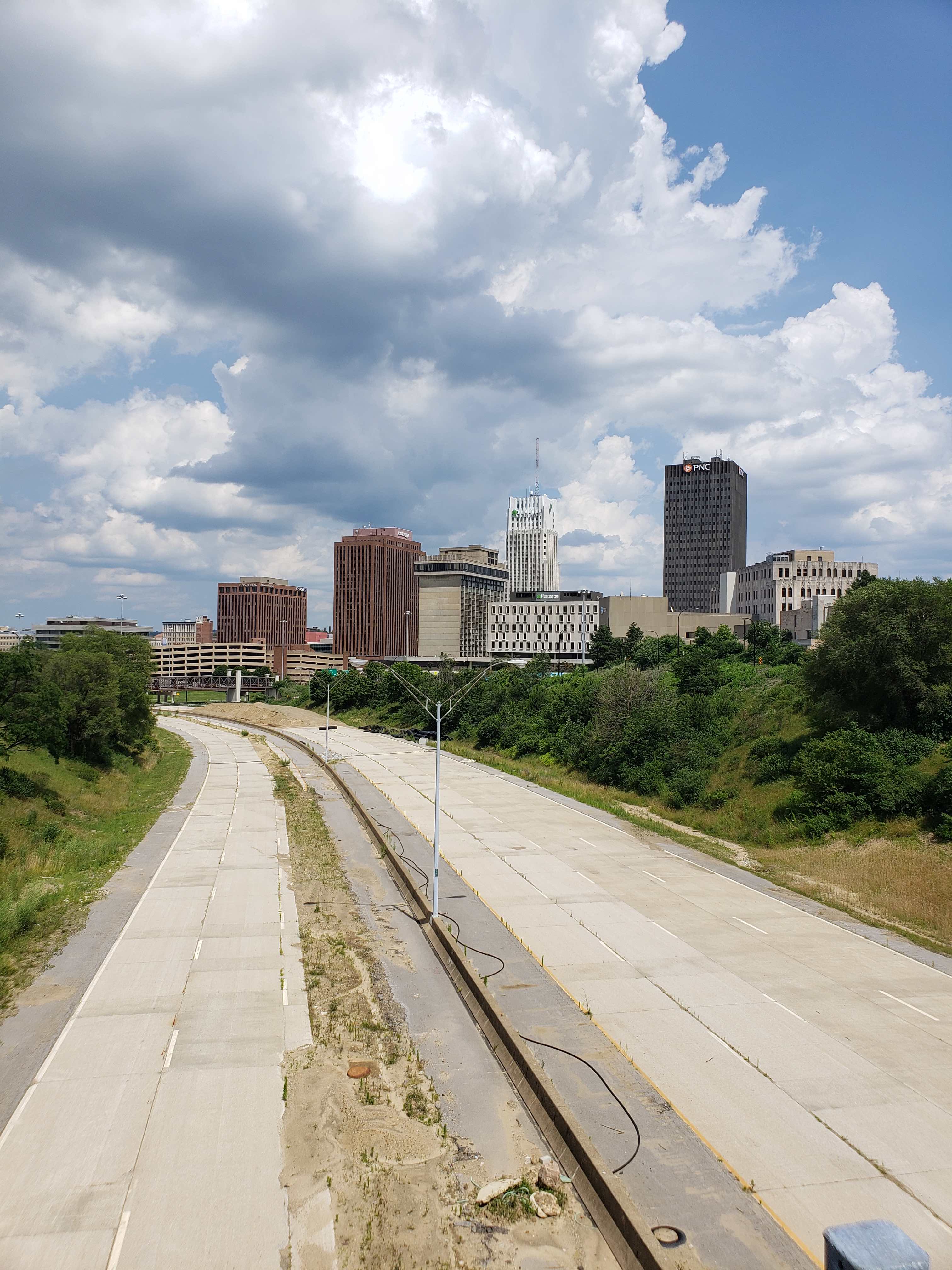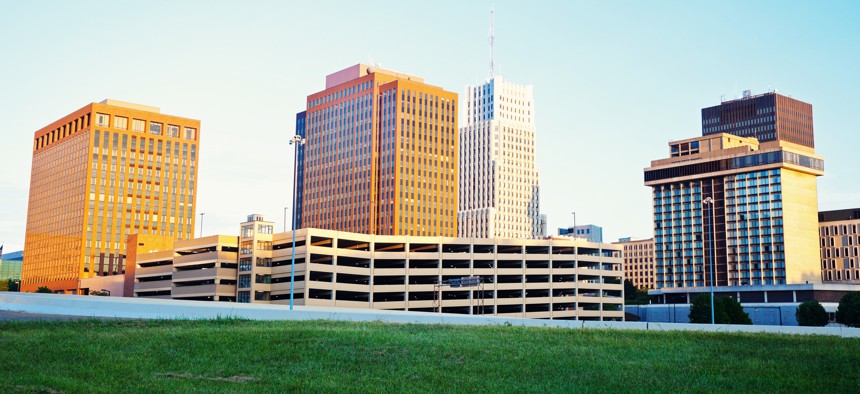Connecting state and local government leaders
Akron’s planning director says there’s a chance that what’s now a “concrete trench” could one day become a park.
It’s been about 18 months since the state of Ohio decommissioned a three-quarter mile stretch of freeway that slices through the heart of Akron, leaving the city to reimagine what it should do with roughly 20 acres of space near its downtown core.
The Innerbelt, as the roadway is known, is a classic example of the sort of highways and “urban renewal” projects that were planned and carried out across the U.S. between the 1950s and 1970s, leaving divided neighborhoods and displaced residents in their wake.
Jason Segedy, Akron’s director of planning, noted that the Innerbelt was never completed as planned. It was supposed to link two freeways together, but only ended up connecting to one of them. “It kind of was,” he said, “like a road to nowhere.”
Construction of the road led to the demolition of more than 100 businesses and forced thousands of people to move in a part of the city that was predominantly black and low income, according to an article about the project local publication The Devil Strip printed last year.
Now, as with other freeway removal projects—in places like Rochester and Syracuse, New York—the demise of the Innerbelt presents the city with a chance to mend what many planners and others have come to view as the troubled legacy of the urban renewal period.
Turning the Akron site into a park is a leading idea currently, although no plans to do that have been finalized, Segedy said.
“I think the park idea really has legs and that’s probably what we’ll pursue in the short-term at least,” he said. “No matter what direction we go, we would like to beautify it.”
He described the closed roadway as it sits as an “ugly concrete trench flanked by two newly paved service roads.”

Akron has about 198,000 residents and is located 40 miles south of Cleveland. In its industrial heyday, the city was known as a major hub for rubber and tire manufacturers.
Goodyear Tire & Rubber, as of the end of 2018, remained the fifth largest employer in town, with about 3,000 workers. But the three biggest local employers were all in the health care sector.
The Innerbelt freeway came to be in phases, with the now-closed segment opened to traffic in the 1970s.
By the early 2000s, the city was considering whether it would make sense to shut down and reclaim the highway, and later led an effort to do so. Segedy says the state’s transportation department was open to the idea because of how little traffic the Innerbelt carried.
Around 2014, the local metropolitan planning organization agreed to award money to rebuild the service roads that ran adjacent to the Innerbelt, a key step toward shutting down the freeway.
A report the planning organization issued in 2017 notes that while the roadway was built to handle about 100,000 cars per day, only about 18,000 were traveling on it daily, and nearly 90 percent of them were heading into downtown.
Segedy said that the city has received some general proposals from developers who are interested in building on the site of the former freeway. But he raised doubts about whether this would make sense given the potential costs and where the tract of land is located.
“It very much was built in a vacuum from the rest of downtown,” he noted. “We wouldn’t want to have stuff built down there that would have the same problem.”
With funding from two federal grants from the U.S. Department of Transportation, Akron is currently working to rebuild its Main Street, which runs through the central business district. There are plans for between 400 and 500 new apartments in that corridor.
It’s uncertain if the demand is there for housing in the Innerbelt and whether prioritizing residential development in that area would detract from the Main Street effort, Segedy said.
With under $1 million, he said, the city could begin transitioning the former freeway into more of a park space. Initial steps might involve tearing out concrete, building trails and planting some grass. This could buy the city time to consider more complete plans for a park.
Mayor Daniel Horrigan is still mulling over what to do with the space, Segedy said. Funding for the initial improvements would likely flow through the city’s capital budget, which requires City Council approval.
A more ambitious overhaul of the site would involve bringing in designers and architects to explore and present some different options, and what the total costs could be aren’t clear.
Twenty acres isn’t huge as city parks go. Central Park in New York City occupies about 840 acres. Smaller public spaces can pack a punch though. The High Line, built atop an old elevated railway on Manhattan’s west side, has become a major attraction.
Last year, a group called the League of Creative Interventionists drew attention with a “temporary green public space,” established adjacent to the Innerbelt. Dubbed the Innerbelt National Forest, it featured about 90 trees, some trails, and was active for about two months.
The roadway itself was off-limits for the “forest” at least in part because it was being used as a staging site for a sewer project.
Segedy said the city has since “basically agreed” to allow that smaller site to become semi-permanent, adding that it could dovetail nicely with plans for a bigger park.
He points out that for mid-sized cities like Akron, at the time the Innerbelt was planned and built, the expectation was that growth and industrial development would continue in a way that was at least similar to the past. But that’s not exactly the way things panned out.
Akron’s population grew from around 244,000 in 1940 to near 290,000 in 1960. But in later years it began to decline toward the levels where it is today. The rubber industry bottomed out in the 1970s and 1980s, as technology changed and foreign competition increased. At the same time, following national trends, more people moved to the suburbs.
“Infrastructure ended up being overbuilt,” Segedy said. But he sees an upside. What in hindsight ended up being some bad planning decisions, he said, now present opportunities.
Bill Lucia is a Senior Reporter for Route Fifty and is based in Olympia, Washington.

NEXT STORY: Election Officials Spar Over Speed, Scope of Voter Registration Upgrades




